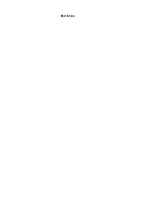Eugenische Vernunft
Eingriffe in die reproduktive Kultur durch die Medizin 1900–2000
Author(s)
Wolf, Maria A.
Collection
Austrian Science Fund (FWF)Language
GermanAbstract
This is a study about the causes and consequences of the eurgenic intrusions into our society´s reproductive culture by medicine over the course of the twentieth century. By the turn of the twenty-first century, such scientific intrusions through biotechnological selection at the very beginning of a human´s life have become socially acceptable and part of the task of family planning. Of intrinsic interest is the goal of subjecting the normative ideal images of family, motherhood, fatherhood and childhood - which through medical science have advanced eugenic intrusions into the social organization of the species "reproduction" - to a gender-sensitive analysis. This study also highlights how these ideal images are integrated into the development of the biotechnologies of conception and selection, and how these technologies in turn influence familiy planning. The issue are analyzed against the background of social and scientific developments which accompanied and made possible the rise of eugenic rationality in the twentieth century. The sources used for this analysis are medial studies published in the journal Wiener Klinische Wochenschrift between 1900 and 2000; the methodology applied is discourse analysis. The project was financed by a research grant (APART) under the auspices of the Austrian Academy of Science (ÖAW). This research demonstrates: which concepts of gender and generation within the families are inherent to the eugenic ideal images; which social transformation processes were integrated into these ideal images; how and why parenthood and childhood were scientiffically rationalized and modernized; the demands which have increasingly confronted parents over the past decades as regards successful instruction and education; the duties which emanated in the namen of the child´s well-being; and the reasons for which biotechnological selection at the very beginning of human life currently has a sweeping influence on motherhood and childhood. Finally, the study demonstrates that the existing reproductive culture in our society is infused by eugenic rationality. A further investigative dimension of the eugenic mainstream is also developed by virtue of the approach in which the focus consistently points to the scientific reorganization of the entire context of reproduction. And by virture of which the scientification of the reproductive culture is examined and analyzed by contextualizing Austria´s twentieth-century social and socio-political history. In addition, a profound and exemplary critiqu of science is elaborated by employing the approaches of the sociology of science as well as the history of science and drawing upon the Austrian example of (bio)medicine and bio(medical) technologies of conception and selection. Science is presented in its cultural and political entanglement as a bastion of hegemonic masculinity, staking a claim to the connection between science and responsibility. In der Studie werden Ursachen und Folgen von eugenischen Eingriffen in die reproduktive Kultur unserer Gesellschaft durch die Medizin des zwanzigsten Jahrhunderts untersucht. Wissenschaftliche Eingriffe, welche an der Wende zum 21. Jahrhundert biotechnische Selektionen am Lebensbeginn gesellschaftsfähig und zur Aufgabe von Familienbildung gemacht haben.
Erkenntnisleitendes Interesse der Studie ist es, normative Idealbilder von Familie, Mutterschaft, Vaterschaft und Kindheit, welche die eugenischen Eingriffe in die gesellschaftliche Organisation der "Reproduktion der Gattung" durch die Medizin hervorgebracht haben, einer geschlechtersensiblen Analyse zu unterziehen und transparent zu machen, wie diese Idealbilder einerseits in die Entwicklung von Biotechniken der Zeugung und Selektion eingearbeitet wurden und wie diese Techniken andererseits wiederum die Familienbildung selbst beeinflussen. Diese Frage wird vor dem Hintergrund der gesellschaftlichen und wissenschaftlichen Entwicklungen analysiert, die den Aufstieg einer eugenischen Vernunft im 20. Jahrhundert begleiteten und möglich machten. Materiale Grundlage der Analyse sind medizinische Fachartikel der "Wiener Klinischen Wochenschrift" der Jahrgänge 1900 - 2000, die im Rahmen eines von der Österreichischen Akademie der Wissenschaften (ÖAW) durch ein APART-Stipendium finanziertes Forschungsprojekt erhoben und diskursanalytisch untersucht wurden.
Die Untersuchung vermag zu zeigen, welche innerfamiliären Geschlechter- und Generationskonzepte den eugenischen Idealbildern inhärent sind, welche gesellschaftlichen Transformationsprozesse in diese Idealbilder eingearbeitet wurden, wie und wozu Elternschaft und Kindheit naturwissenschaftlich rationalisiert und modernisiert wurden, mit welchen Anforderungen an eine gelingende Erziehung und Bildung Eltern dadurch in den letzten Jahrzehnten zunehmend konfrontiert werden, welche Pflichten im Namen des Kindeswohls daraus für Mütter hervorgehen, weshalb und wozu biotechnische Selektion am Lebensbeginn heute eine allgemeine Einflussgröße von Mutterschaft und Kindheit darstellt und dass die reproduktive Kultur unserer Gesellschaft heute von einer eugenischen Vernunft durchzogen ist.
Mit der Forschungsarbeit wird eine weitere Dimension des eugenischen Mainstreams erschlossen, in dem der Focus konsequent auf die wissenschaftliche Neuordnung des gesamten Reproduktionszusammenhanges gesetzt und die Verwissenschaftlichung der reproduktiven Kultur im Kontext der Sozialgeschichte und sozialpolitischen Geschichte Österreichs im zwanzigsten Jahrhundert aufgearbeitet wird. Mit dem wissenschaftssoziologischen und -historischen Zugang zum Forschungsgegenstand wird zudem am Beispiel von (Bio-)Medizin und bio(medizinischen) Techniken der Zeugung und Selektion eine profunde exemplarische Wissenschaftskritik ausgearbeitet, die Wissenschaft in ihren kulturellen und politischen Verstrickungen als eine Bastion hegemonialer Männlichkeit deutlich macht und den Zusammenhang von Wissenschaft und Verantwortlichkeit einmahnt.
Keywords
eugenics; scientification; reproductive culture; gender; generation; modernisation; MedizinDOI
10.26530/oapen_437196OCN
995198860Publisher
BrillPublisher website
https://brill.com/Publication date and place
2008Grantor
Imprint
BöhlauClassification
Society and Social Sciences


 Download
Download